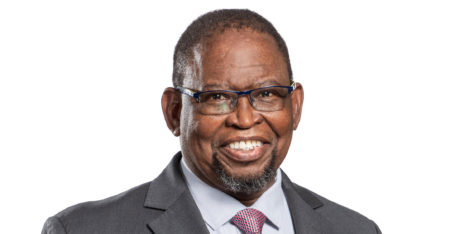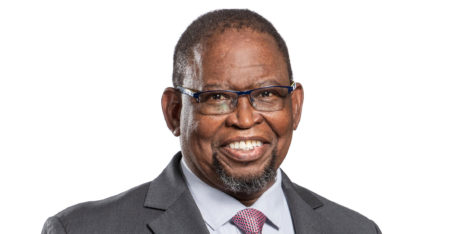 South Africa should speed up its coronavirus vaccination programme and implement economic reforms to avoid further damage after virus restrictions pushed business confidence to a 35-year low in 2020, according to a local commerce group.
South Africa should speed up its coronavirus vaccination programme and implement economic reforms to avoid further damage after virus restrictions pushed business confidence to a 35-year low in 2020, according to a local commerce group.
An index compiled by the South African Chamber of Commerce and Industry showed average business confidence declined to 86.5 last year from 92.6 in 2019, according to an e-mailed statement on Wednesday. That’s the lowest annual number since 1985, when the United Nations Security Council called on members to introduce more far-reaching economic sanctions against South Africa over its apartheid policies.
While the index ticked up to 94.5 in January from 94.3 a month earlier, “South Africa finds itself in a fiscal logjam” making it essential for the government to prioritise economic restoration while addressing the health hazard posed by the pandemic, Sacci said. It released data for December and January on Wednesday.
The economy probably contracted the most in at least nine decades last year after lockdown measures shut some activity for months, leading to business closures and a surge in unemployment. The country’s vaccination plans hit a snag this week after it temporarily halted the roll-out of AstraZeneca’s shots following a trial that showed it had limited efficacy against a new variant of the virus first identified in the country late last year. The government now plans to fast-track the use of Johnson & Johnson vaccines.
“The successful application of a viable vaccine appears to have become critical in addressing the Covid-19 risks and ensure the survival of the economy,” the business chamber said.
Hard hit
With almost 1.5 million confirmed cases and more than 46 000 deaths, South Africa is the hardest-hit country on the continent.
Finance minister Tito Mboweni’s 24 February budget will be a watershed event and should pay urgent attention to implementing medium-term corrections, adjusting public-sector finances and putting the economy on a growth trajectory, Sacci said.
Capital markets are sceptical of the government’s plans to rein in expenditure and return public debt to sustainable levels. That means “the only way out of this predicament is to enhance private-sector fixed investment, provide credible economic policy that improves confidence in economic growth prospects, and reduce the role of the state to lessen borrowing levels and public debt servicing costs,” the chamber said. — Reported by Prinesha Naidoo, (c) 2021 Bloomberg LP




